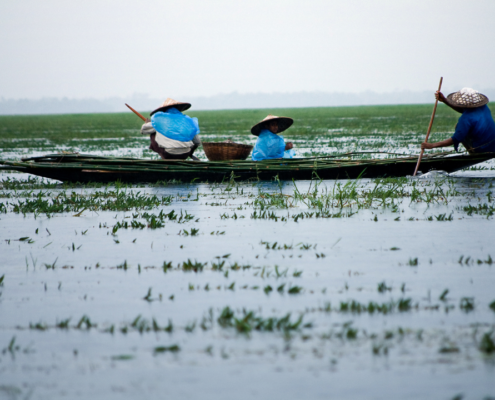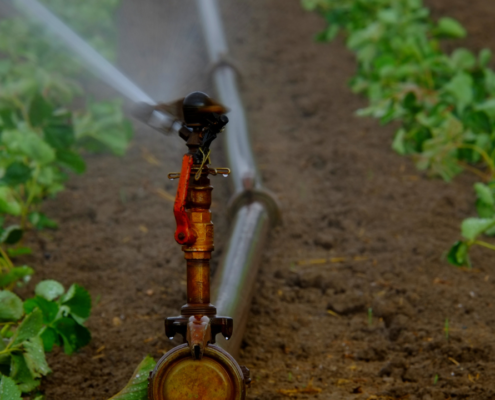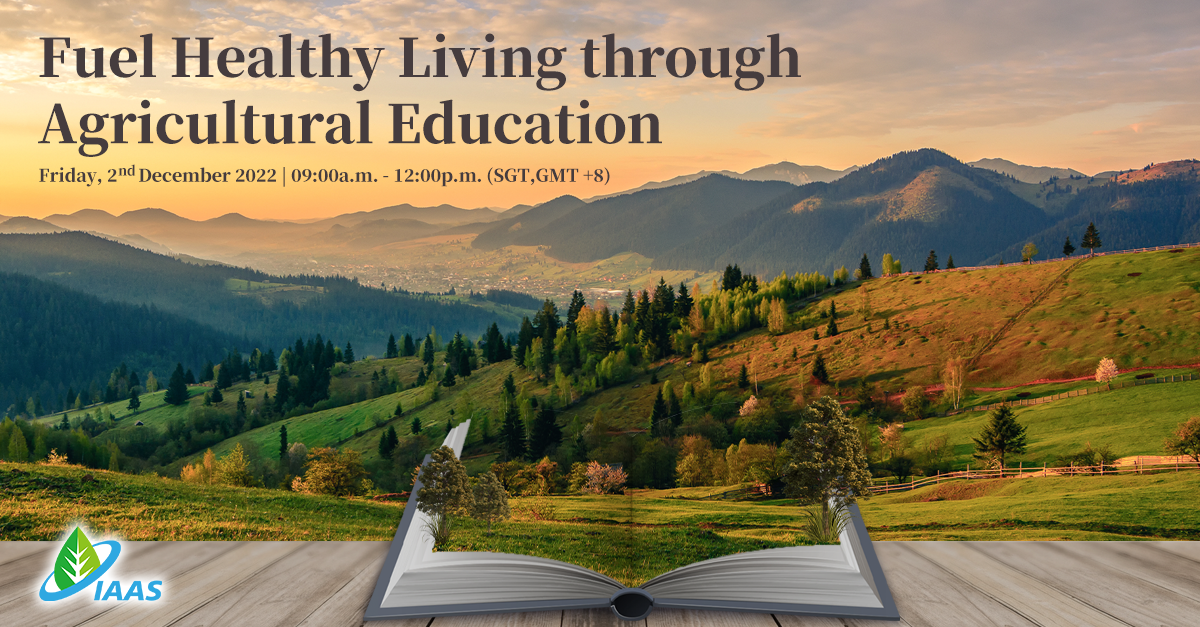Bangladesh food security increased by farmers’ 30-year efforts
IAAS Secretariat: Chloe Tay
Collective groundwater pumping by millions of farmers in Bangladesh in the dry season each year has created vast natural reservoirs underground that, over a 30-year-period, rival the world’s largest dams – these sustain irrigation that has transformed this previously famine-prone country to a food-secure nation, according to a new study led by University College London (UCL) researchers.
Published in Science, the study explores the combined impact of 16 million smallholder farmers pumping shallow groundwater during the dry season to irrigate rice paddies in the Bengal Basin of Bangladesh between 1988 and 2018.
The study revealed that by lowering groundwater levels through dry season pumping, leakage from rivers, lakes and ponds replenishing groundwater was spurred during the subsequent monsoon. This capture of surface water not only allowed groundwater levels to recover but, in doing so, helped to reduce flooding.
Through this process, which the authors describe as “The Bengal Water Machine”, more than 75 cubic kilometres of freshwater was “captured” over 30-years – a volume equivalent to the combined reservoir capacities of China’s Three Gorges Dam and the Hoover Dam in the US.
The researchers have held this up as a sustainable alternative to conventional approaches to seasonal river flow storage for irrigation, including dams and reservoirs, which are challenging to construct in densely populated alluvial plains, like the Bengal Basin, that comprise extensive flat landforms of sand, silt and clay laid down by annual floodwaters.
Co-lead author, Professor Richard Taylor (UCL Geography) said: “Our analysis has profound implications for the expansion and optimisation of this vital, under-recognised engineering marvel that sustains irrigated food production within alluvial plains of the seasonally humid tropics.”
He added “In a warming world, the demonstrated resilience of this conjunctive use of surface water and groundwater to hydrological extremes of the dry and monsoon seasons that are amplified by climate change is of strategic importance to global food security.”
The role of education in farm production and the implication of these findings for rural education programs in Bangladesh are topics to worth discussing about.
Acknowledging the importance of education in labour market success of individuals, governments all around the world routinely advocate further investment in education. However, majority of the population in developing countries depends on agriculture for their livelihoods. Knowledge of market returns to education is less useful as a guide to increase educational investment in such agrarian societies. In theory, education is expected to improve productivity in all spheres of activities including agriculture.
On Friday, 2nd December 2022, International Association for Agricultural Sustainability (IAAS) will be hosting a webinar on “Fuel Healthy Living Through Agricultural Education.” We have invited many prestigious speakers to inspire us and propel the discussion in the right direction. We cannot wait for you to join us on our webinar day and participate in the fruitful discussion with our speakers!
What are you waiting for? Sign up now: https://www.eventbrite.com/e/426979917427






